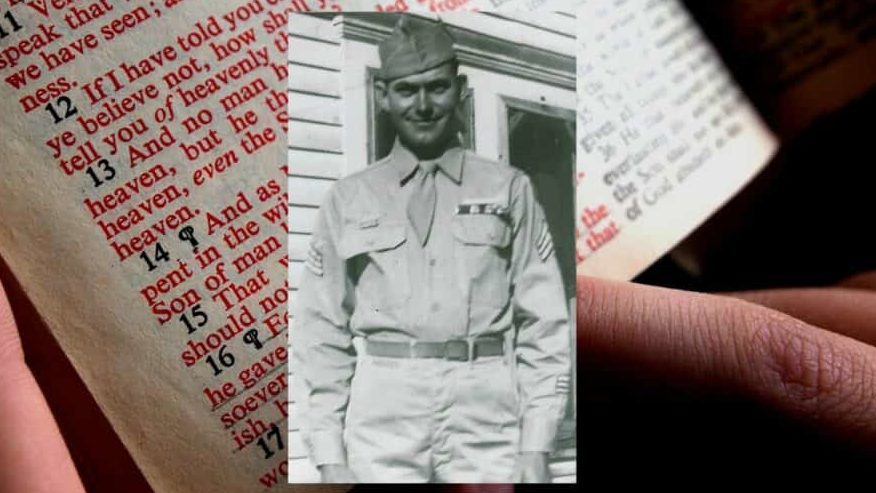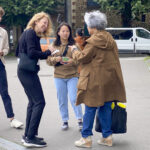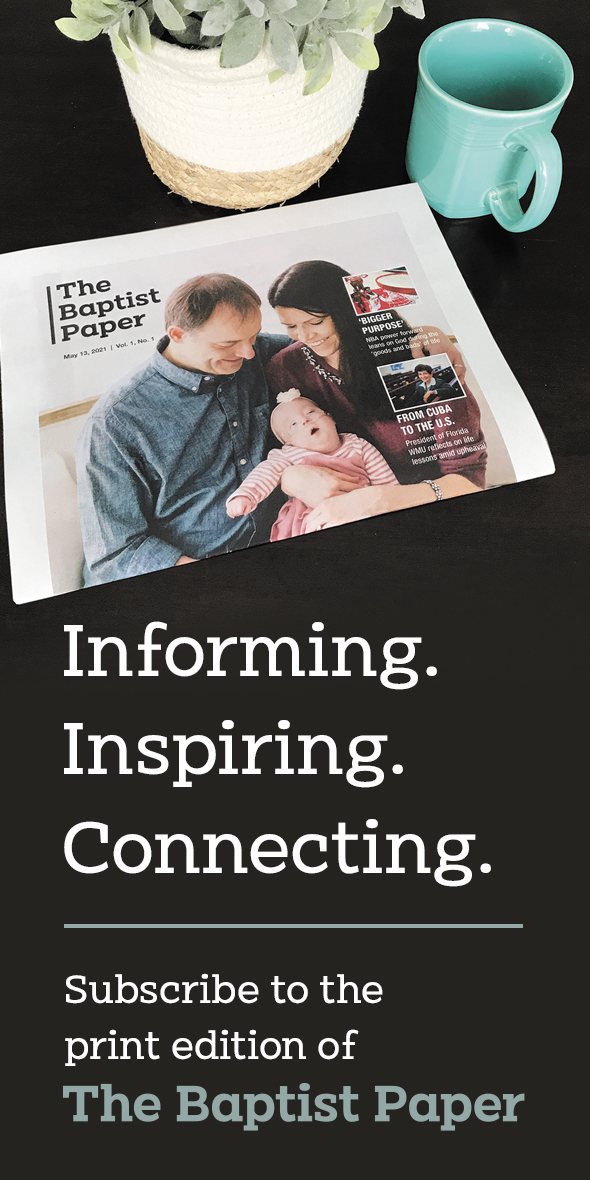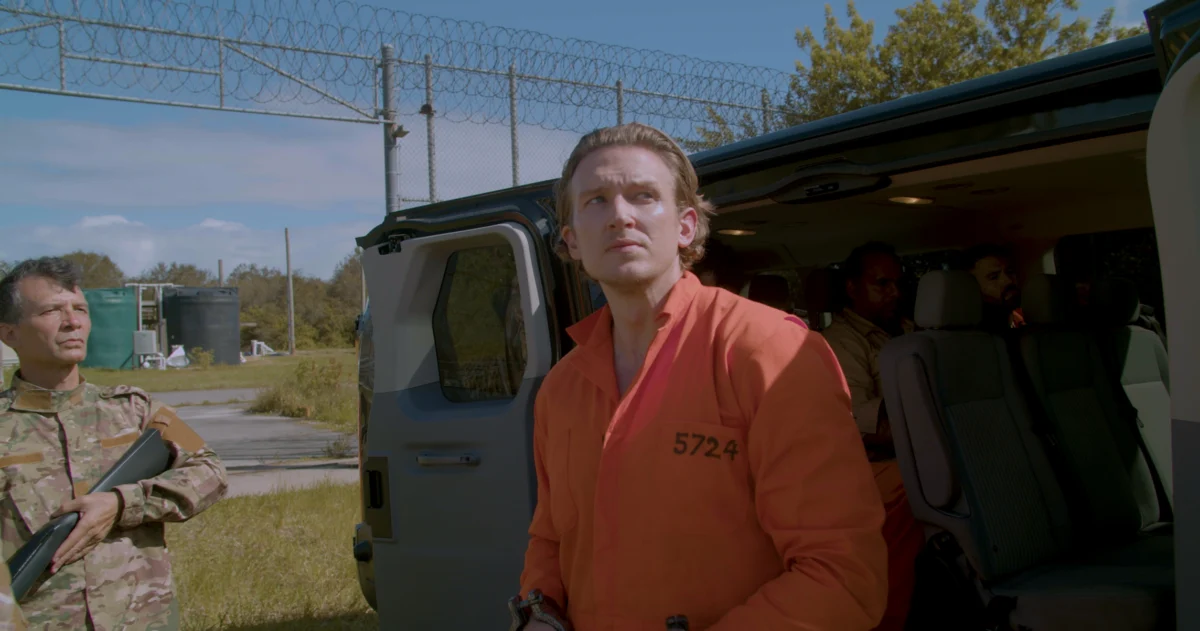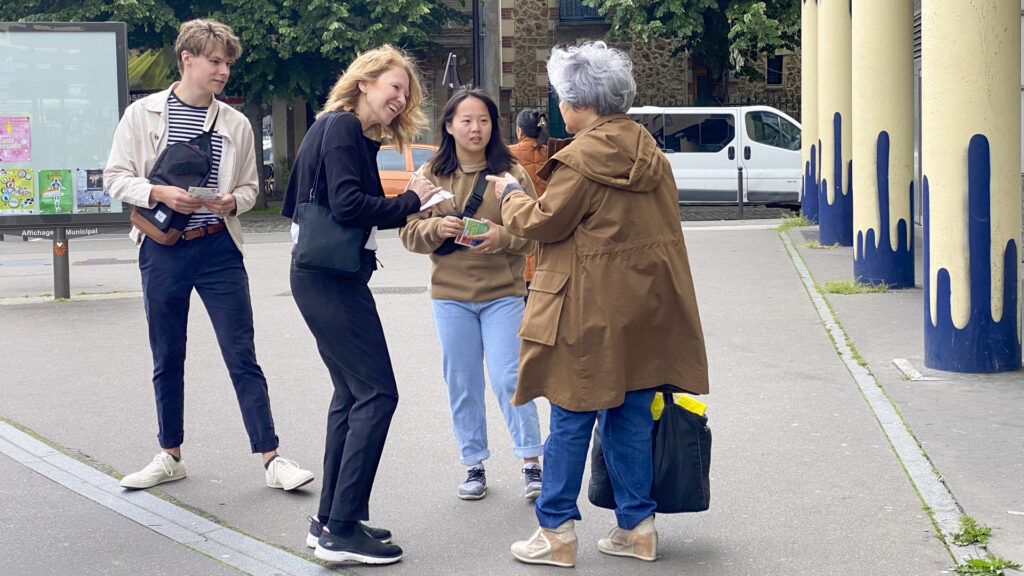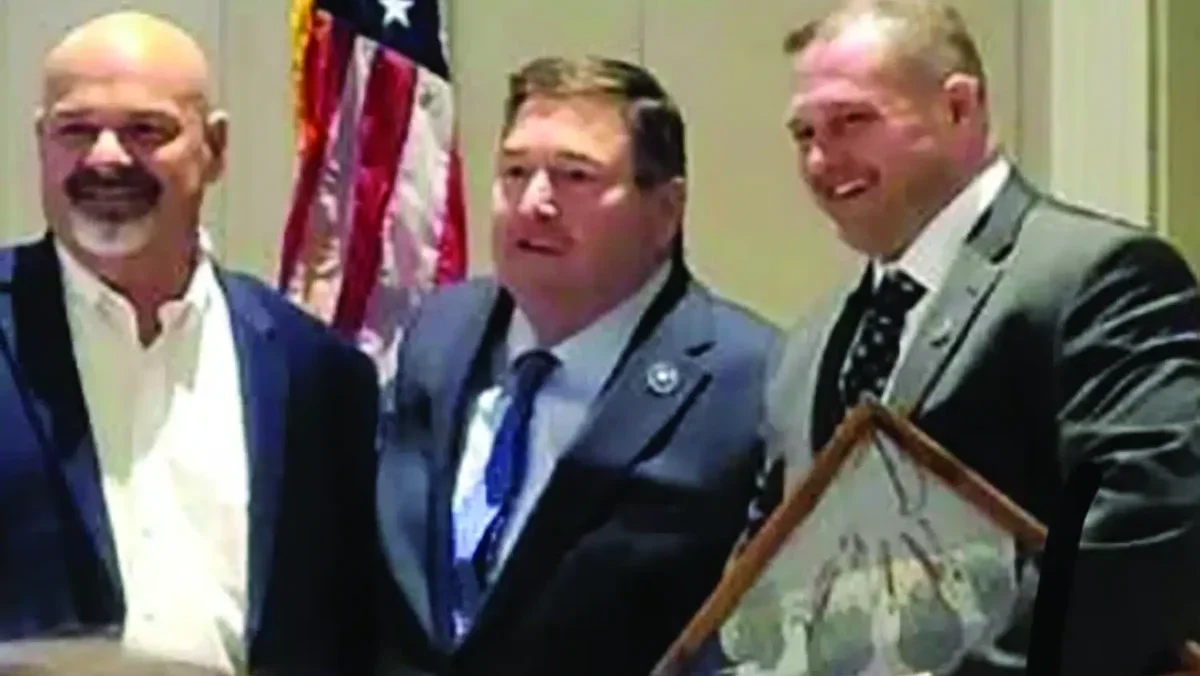In May of 1945, three months before the end of fighting in the Pacific in World War II, a short notice with a Philippines dateline appeared in the Chicago Tribune. It bore an intriguing headline: “Missouri private’s secret mystifies whole regiment.”
It told the tale of Private Gineth E. Hudson, a 23-year-old jeep driver from Cainsville, Missouri, a tiny town just south of the Iowa border. According to the article, Hudson had a reputation as a quiet, serious soldier, and he passed almost all of his spare minutes, in between evacuating the wounded, by reading his Bible.
Helping the wounded was a dangerous job, one that attracted enemy snipers’ crosshairs. It seemed like every driver in the regiment was under constant fire, all except Hudson. The bullets rained down until his jeep passed by, then resumed peppering the convoy. When the others began plying Hudson for his secret, he handed them his Bible.
“The private is a quiet man who keeps his own counsel,” concludes the report, “and nobody even knows the denomination to which he belongs. But they do know one thing. He has yet to be shot at in the worst sniper infested roads of the Philippine campaign.”
Private Gineth E. Hudson was — and is — a Missouri Southern Baptist.
Fast forward 77 years. Hudson has long been back safe at home in Missouri. He’s a retired bi-vocational pastor and in just a few days, on Nov. 10, he turned 100 years old.
“I’m doing pretty well for an old codger,” Hudson said.
Unusual name
Gineth — for those who might be curious — is pronounced “GUY-nath,” and Hudson knows it’s an unusual name.
“I’ve only heard of one other Gineth, and that was a woman,” he said.
But while his name might be unusual, his early years were pretty typical for rural Missouri. He was born in a home on land homesteaded by his great-grandfather in Harrison county in north-central Missouri. He grew up working hard and graduated from Cainsville High School in 1940. It was while he was in high school that God took hold of Hudson.
“A local church was having a revival right after school started,” he said, “and I felt the need to give my heart to the Lord at that revival. But, that was a Methodist church, and my folks were Baptist. It was October of that next year that I was baptized at First Baptist, Cainsville.”
Serving his country
Like so many of his generation, Hudson answered the call to fight in World War II, though at 22, he was already an old man compared to many of his brothers in arms.
Hudson joined the Army in July of 1944 and was deployed to the Philippines the last day of 1944. He began in a heavy weapons company, first as part of a machine gun squad, and later he drove jeeps evacuating the wounded. It was in this role that his “secret” Bible kept his fellow soldiers on their toes as he stayed safe.
Yet, while God kept Hudson safe from snipers, he did not escape the war untouched. “A month before the war ended, I was wounded in a grenade attack on our position,” Hudson said. “I’m still getting metal out of my body from that grenade attack.”
Despite the wounds to his left leg, hip and both hands, he would recover, and served nine months in Japan during the post-war occupation, where he was promoted to Sergeant and was put in charge of the company motor pool. He returned to Missouri in 1946.
“I did what I was called upon to do,” Hudson said.
A surrendered life
Doing what he was called to do would mark the rest of his life.
After Hudson returned home, he and his wife, Ethlyn Jane (she prefers Jane) met at church, and they were married on July 13, 1951. They marked their 71st wedding anniversary this summer.
Not long after he and Jane started their lives together, the Hudsons were at another revival meeting.
“In the process of participating, I felt the Lord calling me to be a pastor,” he said. “I surrendered to that in September of 1956.”
He decided he needed some schooling if he was going to preach, so he and Jane moved to Bolivar to attend what was then Southwest Baptist College. Soon after that, he began pastoring Shady Grove Baptist Church outside Warsaw while he worked as a carpenter.
“They paid me $20 a week, and it was 70 miles one way,” he said.
He would graduate with a teaching degree, alongside Jane with her degree in medical technology. He taught reading over the years and worked “wherever I got the opportunity” to support his bi-vocational ministry.
Shady Grove was the beginning of a 56-year ministry across seven churches. He also led evangelistic crusades in Australia in 1964, and both he and Jane were commissioned by the then-Home Mission Board in 1991 as Mission Service Corp volunteers. Hudson retired – if any preacher ever truly retires — at age 90 from Mount Etna Baptist Church in Bolivar, where they are still members.
During that time, they had four children, eight grandchildren, and nine great-grandchildren.
“I’m grateful to have the privilege to enjoy my children, grandchildren and great-grandchildren,” he said. “They’re all Christians, and all a blessing!”
One day at a time
Hudson may have had a “secret” to surviving war, but he doesn’t really have one to share for living a full century.
“Just live one day at time, I guess,” he said. “I never expected to live to be this old. I had my first heart attack when I was 80, and didn’t retire until I was 90!”
Expectation or no, Hudson has seen and experienced a lot of change in his century of life. For better or worse, culture has evolved, tastes have changed and technology has exploded.
“I saw our country change from farmers using horses to high-powered machinery operated by computer,” he said. “I never had anything like that!”
Yet God’s protection and provision has not changed from when he eluded enemy snipers 77 years ago. While churches often look different than they did decades ago and preaching styles may have changed, the message of God’s word and the world’s need of it haven’t.
“Deliver the message so that the people can understand,” Hudson said of his advice to younger pastors. It’s wisdom that remains the same no matter the year. And it’s definitely not a secret.
EDITOR’S NOTE — This story was written by Brian Koonce and originally published by the Pathway.

